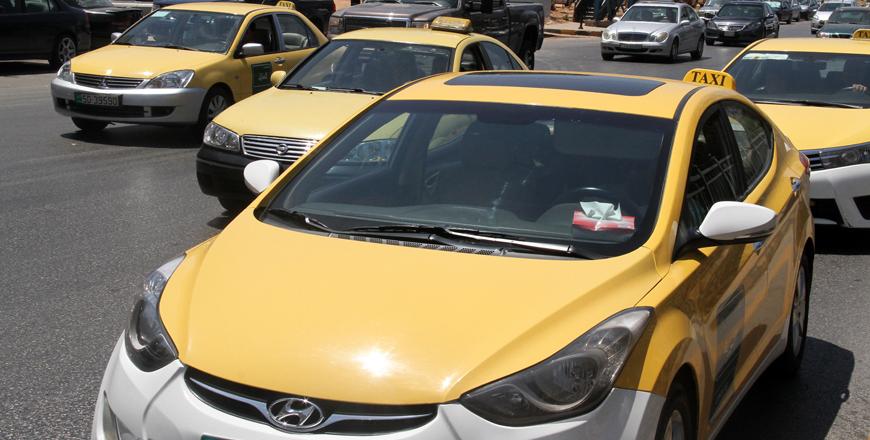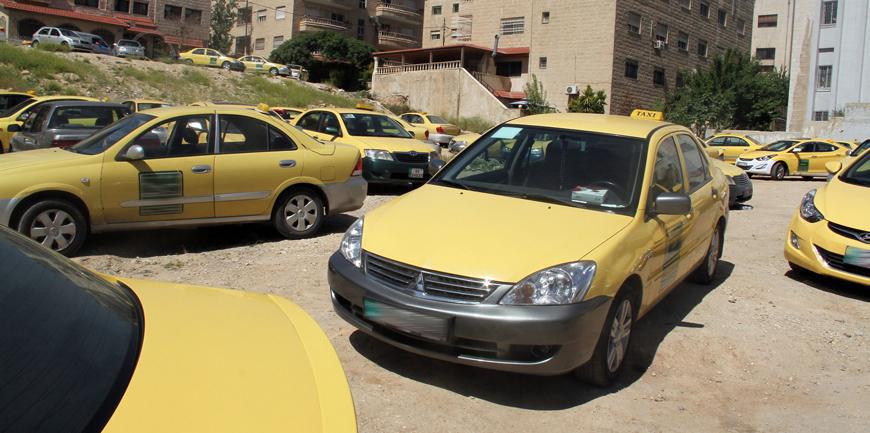You are here
‘Smart Cab system to be rolled out in next few months’
By Suzanna Goussous - Apr 06,2017 - Last updated at Apr 06,2017
AMMAN — The “Smart Cab” system will be operational within the next few months, regulated by the Land Transport Regulatory Commission (LTRC) and taxi offices around the country, as instructed in the official Gazette, according to officials.
Abla Wishah, media spokesperson at the LTRC, told The Jordan Times that the commission is currently working on the implementation of the new system, after finalising paperwork and settling the legal issues of drivers and taxi offices’ contracts.
The new system will include navigation tracking systems, front airbags, digital screens and media players, (DVD or USB), and free WiFi services accessible to passengers, according to a statement published in the official Gazette Monday.
Some cars will be specialised in transporting passengers with disabilities.
With the approval of the LTRC, taxi offices will choose a new unified colour for all vehicles, according to the Gazette.
The “Smart Cab” system will allow passengers to apply for a ride via a smart application, which will limit problems of passengers. A database listing the demand, number of smart taxis and the number of passengers will be handled by the office in charge, the statement said.
The regulations stipulate many conditions for an applicant to license a smart taxi office, which will also apply to companies and institutions already registered with the Ministry of Industry and Trade.
The instructions also require each office to license at least 50 vehicles, including two cars for passengers with special needs.
“Smart taxi” drivers must be Jordanian national and between the ages of 21 and 60 years.
The permit will provide a “smart taxi” car licence in return for the payment of JD1,000, instead of the annual licence fees.
Samia Sawalha, living in Amman, said the system will have many positive impacts, especially since the system will include a tracking system, which will make passengers and visitors “feel safer”.
But Mohammad Saaydah, a 22-year-old university student who uses public transportation every day, disagreed, explaining that “there are more important services to improve in taxis.”
“Sometimes, we should pay attention to more important features of public transport, such as the cleanliness of the vehicle, the behaviour of the driver,” Saaydah said. “And we should definitely address the problem of ‘choosing’ passengers first,” Saaydah added.
Related Articles
AMMAN — The Land Transport Regulatory Commission has started applying regulations issued by its board of directors to unify the colours of e
AMMAN — A total of 120 service cabs that used to transport passengers from Amman to Syria and Lebanon will be joining thousands of taxis in
AMMAN — Owners of thousands of yellow taxis will file lawsuits against ride-hailing app companies and authorities, demanding compensation fo













